Rachel Reid, RD
By Rachel Reid, RD
Seventy four percent of individuals with substance use disorder also suffer from nutritional deficiencies or malnutrition.1 Adequate nutrition and hydration are vital to substance use treatment for restoring physical well-being and mental health and for promoting long-term recovery. Individualized nutrition education and counseling provided by a registered dietitian during substance use treatment has been found to significantly improve sobriety success rates.2
It is well known that substance abuse can significantly impair one’s ability to consume a balanced diet. Substance use also depletes many essential vitamins and minerals in the body, which can exacerbate irritability, sleep disturbance, poor digestion, and a compromised nervous system. It is important to start vitamin and mineral supplementation early in the recovery process.
Moderate amounts of lean proteins are essential for liver regeneration and neurotransmitter production. Lean cuts of pork are a great source of thiamin, which is often severely depleted with alcohol use. Thiamin depletion can cause serious neurological deficits as well as metabolic abnormalities. Mindful portions of healthy fats are beneficial for mood and brain function. Complex carbohydrates are imperative for adequate energy levels, B vitamins, blood sugar control, and gut health. Ample amounts of fruits and vegetables are necessary for a balanced diet, healthy digestion, and nutritional restoration.
During treatment, it is important to manage sugar and caffeine cravings that may arise. Residents at Sierra Tucson sometimes report that highly palatable foods, caffeine and/or nicotine are the only pleasurable substances they have left. Sugar and caffeine may provide a temporary rush, lasting only short term; however, when this feeling wears off, individuals may feel worse. These dietary choices are also not nutrient-dense enough to repair brain, liver, and other tissues that were negatively affected by substance use. Often nicotine use increases during treatment, which can damage taste buds, interfere with hunger/fullness cues, and worsen vitamin deficiencies and dehydration.
Extreme weight changes are common with substance use disorder. These weight changes can heighten depression and can worsen body image issues. Food can also become a cross-addiction, leading to binge eating disorder (BED) or bulimia nervosa. It is common for old eating disorder behaviors to resurface in the absence of substances. Overindulgence of food or food restriction can serve as a distraction or a maladaptive coping mechanism for dealing with unwanted emotions and discomfort during and after substance use treatment. It is important that substance use treatment centers have at least a general knowledge of eating disorder behaviors.
Irritability, anxiety, and decreased mood caused by an unbalanced diet, low blood sugar, dehydration, or excess caffeine can be triggers for cravings, which can cause relapse.3 Individuals should be educated on the importance of nutrition to the recovery process and should be counseled on continuing nutritional supplementation, given it can take 3-12 months for nutritional deficiencies to resolve.4 Meal planning, grocery shopping, and cooking are skills that benefit lasting recovery.
Unfortunately, not all treatment centers include nutritional therapy by a registered dietitian. The substance use model, which has been around for many years, did not previously emphasize the importance of nutrition on rehabilitation. We now know that registered dietitians can provide a powerful impact on the treatment process and help support an enduring recovery.
References:
1. Nazrul Islam S, Hossain K, Ahmed A, Ahsan M. Nutritional status of drug addicts undergoing detoxification: Prevalence of malnutrition and influence of illicit drugs and lifestyle. British Journal of Nutrition. 2002;88(5):507-513.
2. Grant L, Haughton B, Sachan D. Nutrition education is positively associated with substance abuse treatment program outcomes. Journal of the Academy of Nutrition and Dietetics. 2004;104(4):604-610.
3. Salz A. Substance Abuse and Nutrition. Today’s Dietitian. 2014;16(12):44.
4. Dekker T, Nutrition & Recovery: A Professional Resource for Healthy Eating during Recovery from Substance Abuse. Toronto, ON: Centre for Addiction and Mental Health; 2000:1-14.












